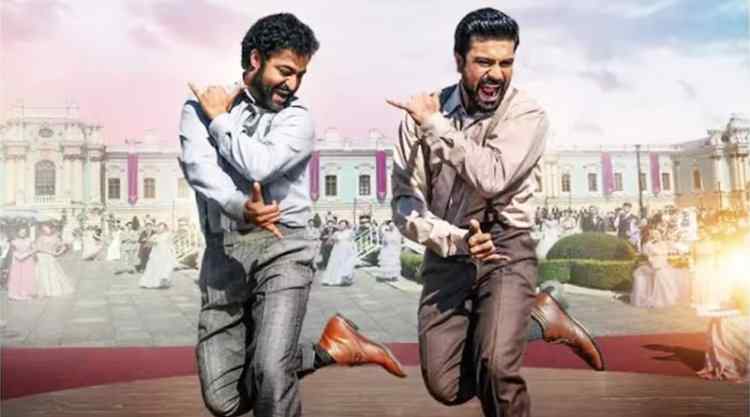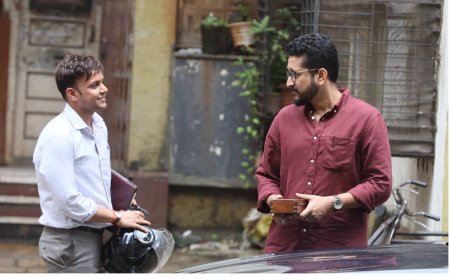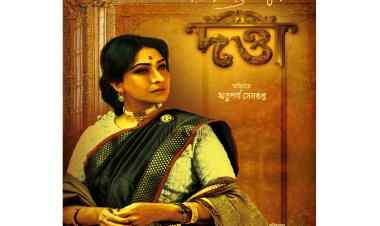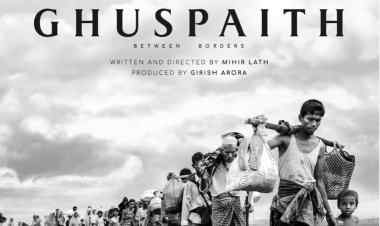INDIAN CINEMA AND THE ACADEMY AWARDS: WHY SUCH BROUHAHA OVER THE OSCAR?

‘Coming to the Oscar winner for the Best Song ‘Naatu Naatu’, did it really need the certification of an Oscar to prove its point?’, writes Dr. Shoma A. Chatterji, an Indian film scholar and author.
India produces not only the largest number of films in the world but also has already produced a rainbow-hued plethora of very good films and filmmakers whose names are commonly talked about across the globe. We also produce films in the largest number of languages spoken in India. Satyajit Ray once appeared on the cover of TIME magazine featuring ten of the best directors of the world placed against the map of the world many years ago. Within this cultural ambience, one wonders why there is so much of joy and revelry and dancing and music along the streets of Hollywood not because two Indian films have bagged the golden knight but just because….
The entire Indian population went gaga across the world when Slumdog Millionnaire won several Oscars though the image of India the film presented was not only one-sided but downright derogatory as it presented a very dramatised close-up of the slum side of India specially focussed on Mumbai which is the Indian version of Hollywood.
With the exception of the Indian cast, Slumdog is an almost entirely British production. Director Danny Boyle is famous for his slick, edgy films, such as the acclaimed Shallow Grave and Trainspotting. The Oscar-nominated screenwriter, Simon Beaufoy adapted Slumdog Millionaire from Vikas Swarup’s 2005 book Q & A. Beaufoy changed some key elements of the novel: the unaffiliated protagonist, Ram Mohammad Thomas, is replaced by a Muslim, Jamal Malik, in order to exploit religious tension as a plot element. The sidelined love interest in the novel, a prostitute named Nita, is transformed into Latika, the childhood sweetheart who provides the impetus for Jamal to enter the game show. His fellow orphan, Salim, becomes his elder brother, who will grow up to betray him. Beaufoy and Boyle cite Dickens as the inspiration for the screenplay, explaining, “[Dickens] is the master storyteller… you follow his lead in having confidence to slam such extremes next to each other in a film and risking such variations of tone.”[1] Thus the story is very much adapted to be a British product, and though this background means that there is inevitably a post- colonial perspective imposed on the narrative, India being a former colony of England, most conflict is avoided by the lack of British presence on screen.[2]
“Aimed at an audience generally unfamiliar with other representations of India, the film hurts more than helps to establish an image of the county because it cements misconceptions and stereotypes. Poverty is one of India’s biggest problems and the slums are one of its biggest shames. But concentrating exclusively on the dark underbelly of the country and disregarding all progress essentially undermines India as a rising superpower, firmly relegating it to a third world status in Western consciousness,” writes Priyesha Biswas.[3]
The golden Oscar statuette grabbed and kissed in joy by all winners was designed by Cedric Gibbons, Metro Goldwyn Mayers (MGM) art Director in 1929. It is a figure of a knight standing on a film reel and gripping a crusader’s sword. The sculptor George Stanley made the design in 3D and the prestigious trophy was born. Why should this “knight” stand on a film reel which is very disrespectful of one of the main roots on which cinema depends? Never mind it is not important in the digital age but it still has a history of its own as it formed the raw material for all films made before digital came into existence.
Boyle takes every ingredient in the Hindi formula, twists it, perfects it, inflates it, breaks it and then draws those chilling moments to the climax back into questions about the very form and image of the Hindi formula film, the seamier side of a Mumbai we do not like foreign directors to peep into and display to the whole world, and justify the prefix ‘slumdog’ before the ‘millionaire’ in the title of the film. What a politically correct way of selling India to the world!
In 2009, Gulzar and AR Rahman won the Oscars in the same category for the 'Jai Ho' track in 'Slumdog Millionaire', but everyone will agree that both Gulzar and A.R. Rahman have given us much more touching and memorable compositions than Jai Ho.
Coming to the Oscar winner for the Best Song 'Naatu Naatu', did it really need the certification of an Oscar to prove its point? It is a crassly commercial song-dance number and its composer has given us much richer and memorable music in earlier films in Bollywood. Grandeur and loudness is perhaps the call of the day. The 'Naatu Naatu' track in 'RRR', which emerged winner in the Best Original Song category, is also the first from India to win the Oscars. It trumped big names like Rihanna and Lady Gaga. Composer MM Keeravani and lyricist Chandrabose accepted the award on behalf of the team.

Image: Rajamouli
'Naatu Naatu' in Hindi translates as “Naacho Naacho” while in English it simply means “dance dance.” Writes Shaoni Sarkar in News18 (January 13 2023) “The impact of colonialism is never over, the phenomenon having permanently altered societal structures. Still, it’s undeniable that there is a particular sensibility- an aesthetic, if you will- that relieves the ‘White Man’s Burden’. While it originated as the term for imperialists’ instinct to “civilise”, it has now shaped itself into a kind of performative guilt that allows relief while simultaneously absolving the performer of any further accountability. This is the kind of art coming out of India that the Western audience is most likely to gravitate towards. After all, it is much easier to understand the impact of colonialism rendered in broad, blunt brushstrokes- a cruel, ill-tempered white man; a group of nice and benevolent white ladies who support the Indian protagonists, and of course, the protagonists themselves. This simplistic narrative appeals to the sensibilities of Western viewers who can gesture towards themselves as enlightened individuals, having participated in and celebrated the kind of music that condemns their racist past, obfuscating the fact that racism is not in the past at all.” This neatly fits into the reason that made RRR and its song-dance number so popular and “hot” in America.
The Elephant Whisperers reaches far beyond any Oscar or Academy Award or any award for that matter as the film stands proudly on its own. If the awards have been bestowed on Guneet Monga and Kartika Gonsalves the producer and director of this unforgettably beautiful documentary, then it is their film that has enriched the Oscars instead of it being the other way round.
This in no way suggests any negative values attributed to the honour given to the awardees. It is indeed an internationally official recognition of their talent and their contribution. The point I wish to make is that Indian cinema, good, bad or indifferent, feature or documentary, short film or long, story or music or treatment, can very well stand on its own and the marketing strategies and public relations machinery working with the Academy Awards Committees may go on a long sabbatical and allow these great Indian filmmakers, their films or songs or themselves flourish on their own. Remember, Charlie Chaplin never won a single Oscar for direction. Neither did Orson Welles or even Pedro Almodovar. Let our young Oscar winners wait for their rightfully earned Lifetime Achievement Awards that are rendered immune to any political, racist or marketing pressures.
[1] Zakaria, Fareed: “Slum Voyeurism?” Newsweek Jan. 30, 2009
[2] Biswas, Priyesha: Slumdog Millionnnaire, dissertation paper, 2008.
[3] Ibid
What's Your Reaction?


































































